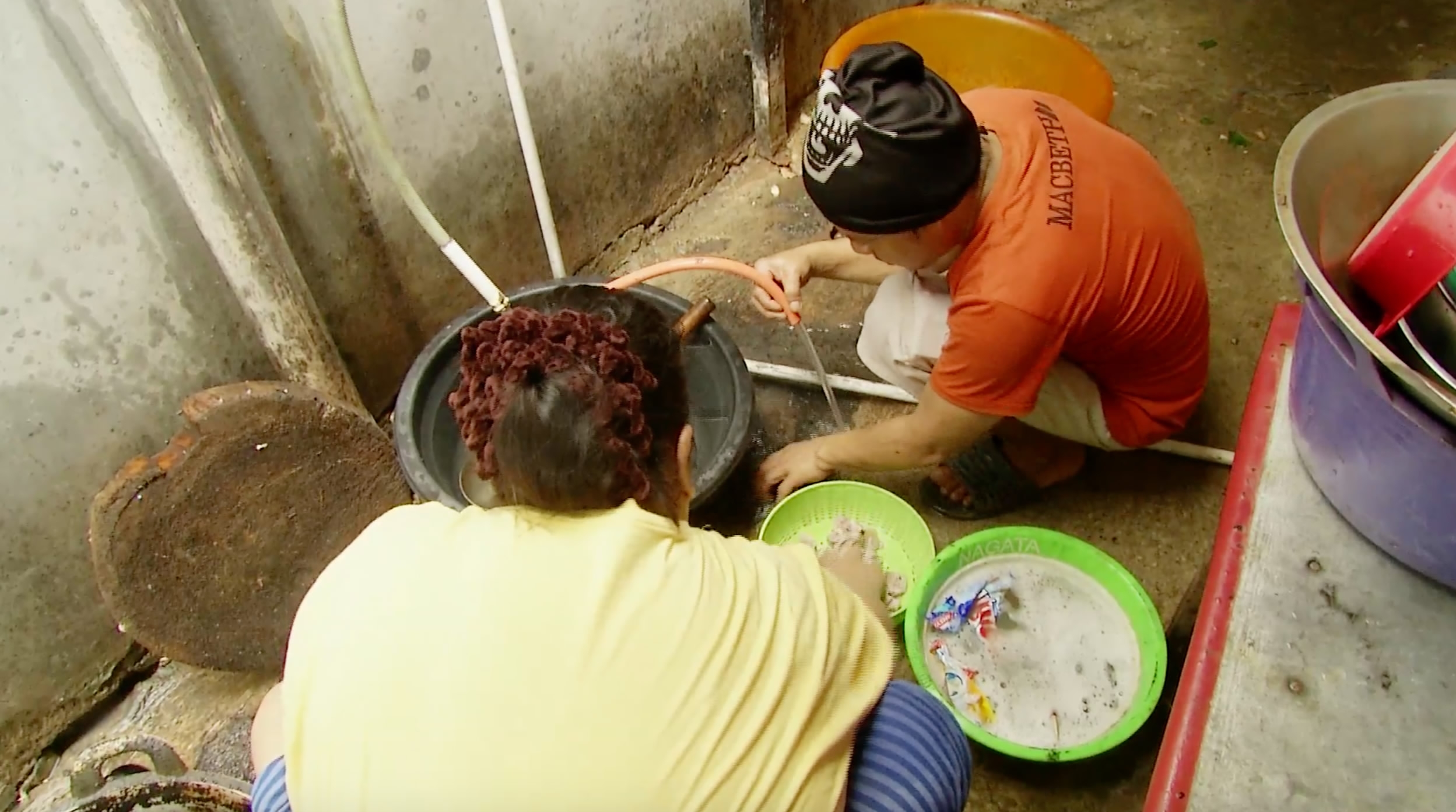
Culture
15:16, 20-Dec-2017
Campaign Against Dog Meat
By Silkina Ahluwalia

As the lunch hour rush is near, Saragih is busy in her kitchen preparing to serve diners her specialty dish. She sits in a corner of the kitchen cutting up spices and seasonings of onions, garlic, chillies and tomatoes.
"This is my favorite dish. I've been eating it since I was a child." she says as she pours oil into the hot pan. As she fills the kitchen with the smell of fried spices, she takes out the meat that has been marinated for more than eight hours.
She watches the concoction bubble and not long after she serves it up on a plate and hands it over to the customer. "They love this dish. It is always sold out by lunchtime," says Saragih.

Saragih. /CGTN Photo
Saragih. /CGTN Photo
The dish she speaks of is called Saksang, a traditional Indonesian meal made of dog meat. Growing up in Mandailing, the North Sumatra region of Indonesia, Saragih is accustomed to eating dog meat. Her family is of Batak ethnicity, a non-Muslim community that have been consuming dog meat for centuries.
"Eating dog meat has been part of the Batak culture for so long. The meat has a lot of benefits. It's especially good to cure illnesses such as dengue fever," says Saragih.
And this is where culture clashes with activism. In recent years, animal activists have been especially vocal about Indonesia's dog meat trade. The Jakarta Animal Aid Network, JAAN, have launched a global campaign to educate people on the dangers of consuming dog meat and on the brutal slaughter of the millions of dogs in Indonesia.

Saragih. /CGTN Photo
Saragih. /CGTN Photo
Karin Franken co-founded JAAN and is also one of the coordinators of the Dog Meat Free Indonesia campaign. She started the initiative with local and global celebrities to shed a light on the issue which she says is "worse than anyone could have expected".
"I do think there are some hesitation. I do think the government agrees that it should be illegal but for the government there is the sensitivity issue that makes them a little bit hesitant. But we continue to encourage them and prove to them that it really is for the best interest," says Karin.

Karin. /CGTN Photo
Karin. /CGTN Photo
In Indonesia, the dog meat trade is especially rampant in places like Manado in North Sulawesi, Java and Sumatra. Those are the regions where dog meat consumption is rooted in their cultures. Many non-Muslim communities in those provinces believe the same story as Saragih does, that eating dog meat brings about various health benefits.
Karin believes it isn't an easy story to change, especially since culture and tradition plays a big part in the consumption of dog meat in Indonesia. However, in a country of 250 million people, less than 7 percent of Indonesians eat dog meat - but those 7 percent are more at risk of transmitting rabies and other diseases due to unsanitary slaughterhouse conditions.
Although, there are no laws prohibiting people from eating and selling dog meat in Indonesia, activists are hoping to work with the government to closely regulate the trade and monitor the entire process including slaughter, distribution, sale and consumption.

SITEMAP
Copyright © 2018 CGTN. Beijing ICP prepared NO.16065310-3
Copyright © 2018 CGTN. Beijing ICP prepared NO.16065310-3